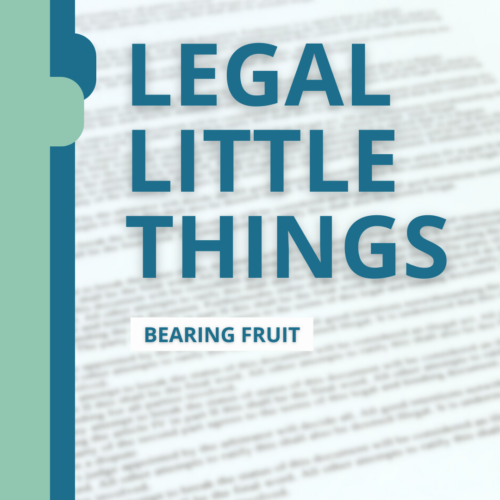Little Legal Things
I never thought I’d say this, but thank god for lawyers.
I had assumed my business was so lil and cute that I wouldn’t generally need legal advice. Until the day I did! (Isn’t this always how the story goes?) My lawyer taught me so much about the little legal things I didn’t know I 100% needed.
So now I’ll tell you.
But if you’re like me, you also want the tea on the legal sitch I was in. I’ll start there.
Someone we’ll call Jon signed up for my Data Viz Academy. After a few weeks, he wrote me to say he’d downloaded all the templates, got what he needed, and would now like a refund.
After I stopped 🤣, I replied with the statement I have posted in multiples on the website, including on the payment page: There are no refunds.
Jon f-r-e-a-k-e-d. He started emailing me many times every day.
He claimed I was taking away his vacation with his daughter.
I was causing him so much stress he couldn’t function at work and will lose his job.
He was going to report me to the Royal Bank.
He’s really very sorry about his rash responses and now that he’s calm could he please have a refund?
He has no choice but to blast me on social media.
My work is all trash and why would he want it anyway.
Not much rattles me anymore. I assumed he has some mental health struggles and that this would die down soon. But the day I got 10 emails in a 5 hour span of time I decided this was harassment and contacted a lawyer.
She helped me tighten my legal bolts.
I had been missing a few elements. There’s nothing I could have done to keep someone like Jon from being very Jon up in my inbox but I had some holes to close. Some of these legal lessons are only relevant to online courses but others likely apply to you if you have a website.
Document everything.
First order of business was to compile the timeline of actions and communications from Jon.
In my searching, I discovered that Jon had actually already done this to me years earlier, back when I did allow refunds. Same thing – signed up, downloaded a bunch of my resources, then asked for a refund. Ya busted, Buddy.
This information all went into the cease and desist letter to Jon from my lawyer.
Beef up the terms and conditions.
The terms and conditions need to include the no refund policy (mine did) with extra language that applies to European regulations. Because Jon lived in Europe. As do many of my students. And Europe has a 14-day refund period for online purchases, no questions asked. UNLESS you have something explicitly addressing it in your T & C.
This could be something to consider if you have any kind of sign up form on your website. Like, if you have a freebie people can download. Your terms and conditions would be where you’d state what people can and can’t do with your intellectual property if they download it. Would you be ok if they posted it on their website? If they printed 800 copies and distributed them at a conference without your knowledge?
We both know that no one reads the terms and conditions. But this is how you protect yourself if something comes up. And it probably won’t. Until it does.
Make agreement to the T & C a mandatory part of sign up.
To be extra legal, you can’t just say “By clicking the Submit button, you agree to the terms and conditions.” Nope. You gotta make people manually check the box – active consent – that says “By checking this box you agree blah blah blah.”
You’ve done this yourself on countless websites and it’s annoying but now you know why.
The annoying cookies notice.
Again, if you collect people’s information at all, your website / customer management system is using cookies and you’ve gotta tell people. It’s the worst, isn’t it? I tried to make mine at least slightly on brand.
This has nothing to do with The Jon Problem but my lawyers were like, while you’re in the site making changes…
Post a privacy policy.
You have to also tell people what you’ll do to protect their name and email. If you’re going to share their email whatsoever, you have to tell them. That includes sharing it from your website to your email newsletter program, for example. If you accept payments online, you have to spell out how credit card info is kept private.
Thankfully, a lot of this language is prewritten boilerplate and you can buy templates from my lawyer here. (I don’t get a kickback or anything, I just want you to feel some relief that you don’t have to invent this from scratch.)
Keep in mind that I’m not a lawyer. I’m just telling you stories about the legal lessons that I learned and you know I’m legally required to tell you to get your own lawyer.
I hope you never have your own Jon Problem. But chances are, the more you grow your business, the more you’ll attract a personal Jon. Please please learn from my experience and put some protections in place.

